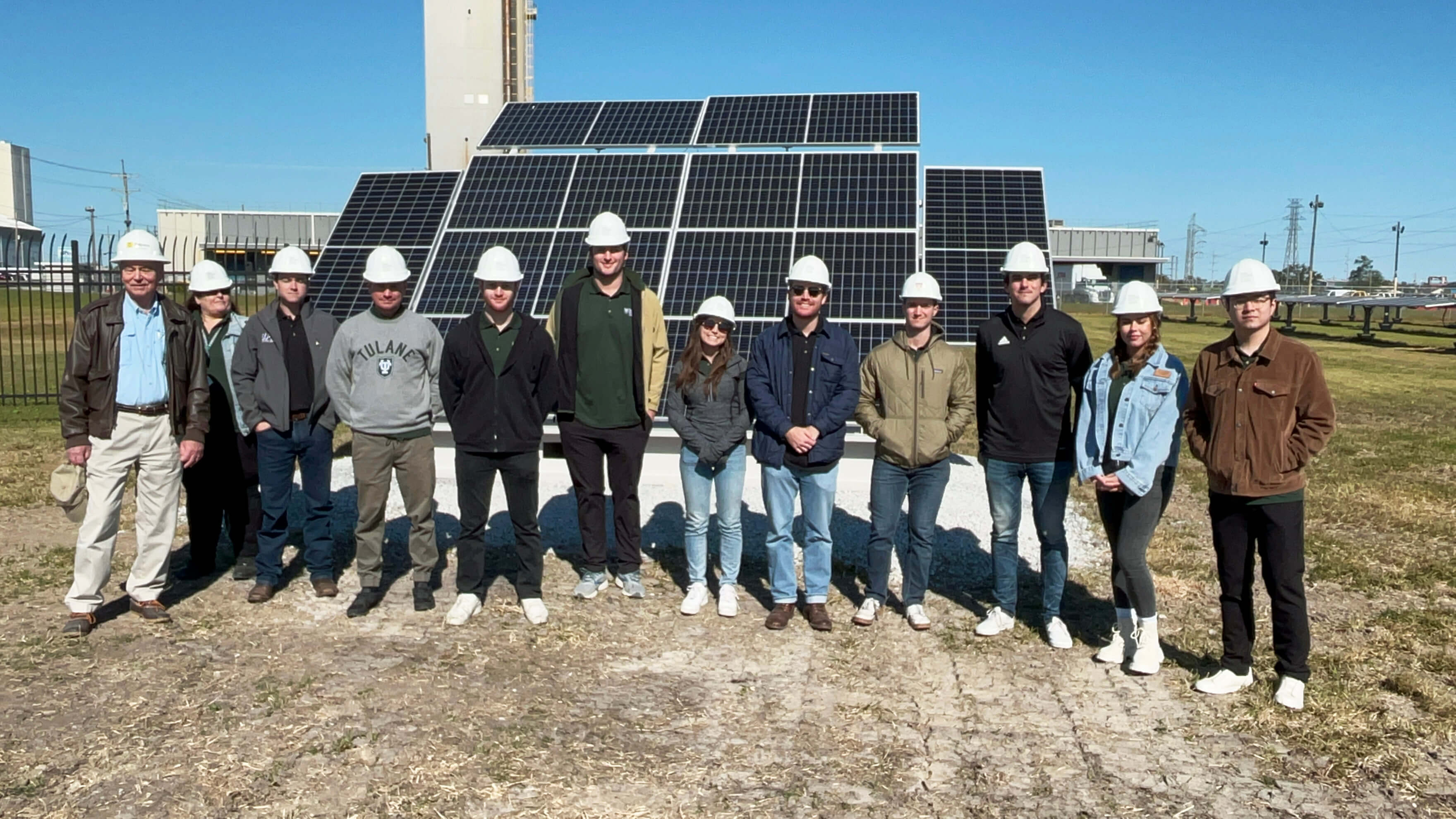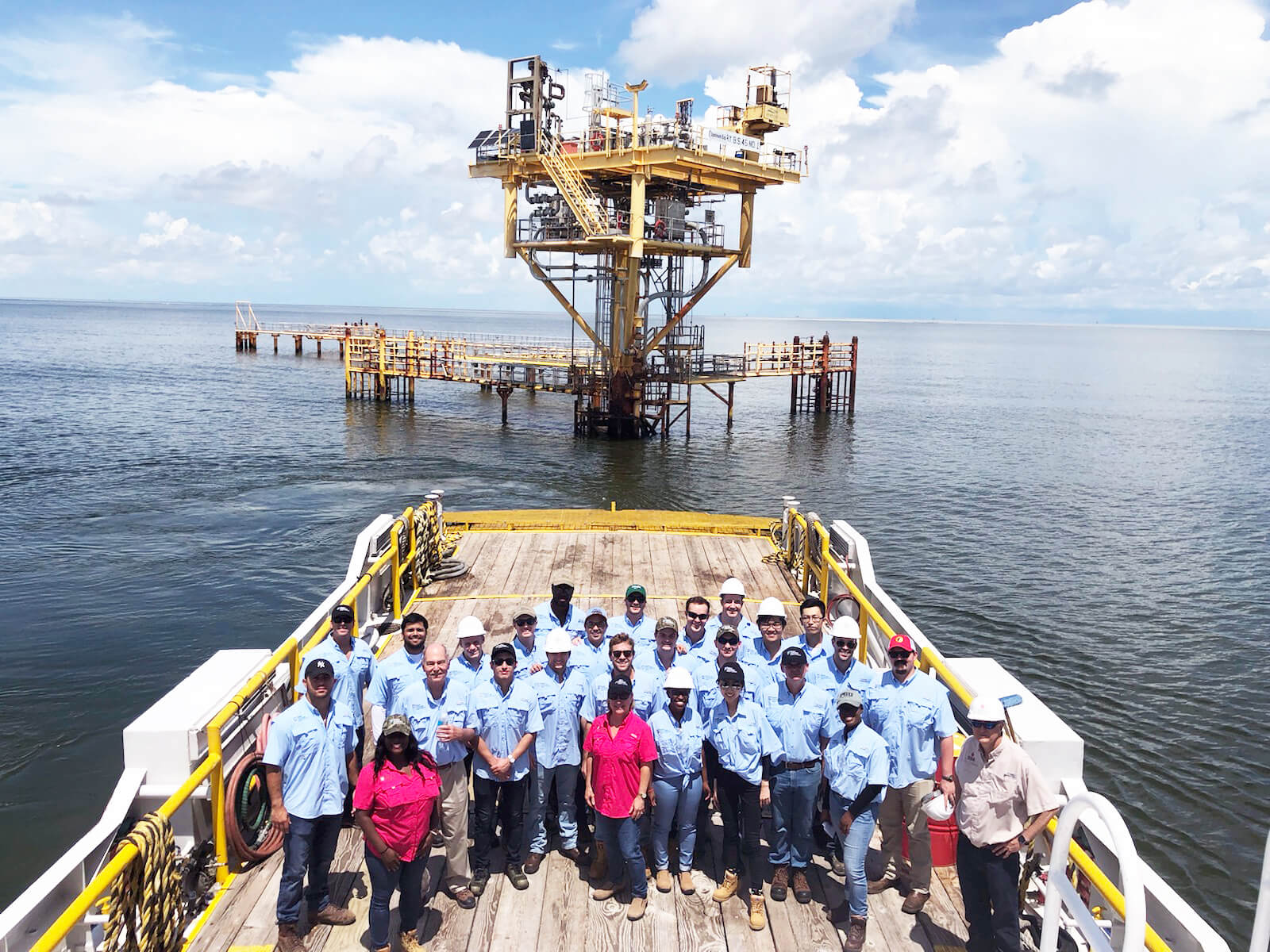By 2040, energy sources including wind and solar will make up 45% of the world’s electricity generation. Businesses can no longer focus on fossil fuels and ignore the growing role of renewables in the nation’s energy mix. They want and need experts to get their firms ahead of this important niche in the market.
Tulane University’s A. B. Freeman School of Business – an internationally renowned business school established in 1914 – is nurturing students into future graduates who fit this description.
“Solar and wind generation were among the fastest growing sectors of energy employment in 2019, and we expect that trend to continue in the post-COVID-19 environment,” says Paulo Goes, dean of the Freeman School of Business. “This new specialisation in renewable energy continues our commitment to preparing students for careers in the rapidly changing energy industry.”
With the new specialisation in Renewable and Sustainable Energy, this brings the total number of specialisations within the Master of Management in Energy (MME) programme to six. A STEM-designated programme, the MME has been offered at the Freeman School since 2011.

Source: Tulane University – A. B. Freeman School of Business
“Over the next several years, it’s going to be increasingly important for energy professionals across all sectors to have a thorough understanding of renewable energy finance and development. This new specialisation provides that foundation, and I couldn’t be more excited to offer it to students,” explains Pierre Conner, executive director for the Tulane Energy Institute and director of the MME programme.
“We want to deliver employees with a ‘net-zero’ skill set who are ready for careers in energy from now to 2050.”
One of the reasons why jobs in the clean energy industry are expected to soar is because almost 40% of carbon dioxide pollution originates from power plants that burn fossil fuels, according to the US Department of Energy. More accessible and affordable renewable energy sources, like wind and solar, can be one long-term solution.

Source: Tulane University – A. B. Freeman School of Business
Indeed, the Freeman School recognises this urgency, as reflected in its innovative specialisation that will impart relevant knowledge and skills required for managing renewable energy projects from start to end. Not only do students get a foundation in financial analysis, data analytics and industry-standard software, but they also learn about energy systems, renewable fuels and technologies, and risk management as well as behavioural and institutional barriers to achieve sustainable energy.
“We really provide a comprehensive energy education. We make sure that students understand that value chain across the spectrum so that they can really understand the system of energy,” says Conner.
Students can choose from a wide range of electives, such as Renewable Energy Project Development and Finance, Energy for Sustainable Development and Renewables in the Electric Power Sector.
The programme’s other perks include a shorter duration and cutting-edge facilities.You can complete this degree in just one year or add on a summer internship to finish in 18 months – which is still shorter than a traditional MBA programme.
Freeman’s Trading Centre – a US$3 million facility – acts as a hands-on laboratory for MME students to simulate the trading of commodities, electric power and renewables. There, current simulation, trading and financial software and databases — like Trading Technologies and DecisionTool Suite — give real-time data feeds and market updates.

Source: Tulane University – A. B. Freeman School of Business
The Centre also offers experiential courses like Energy Fundamentals and Trading, and Advanced Energy Trading and Finance.
In this journey to become experts, Freeman students have the guidance and attention of today’s leading experts. Professors have expertise in banking, corporate finance, energy and consulting. You will get to learn from industry examples, case studies and hands-on exercises, and join the award-winning Burkenroad Reports, the nation’s first university-sponsored securities analysis programme.
Since the school is located in Louisiana – a major energy hub and leader in crude oil and natural gas production – you will be able to visit many oil and gas facilities, refineries and petrochemical plants.
“Our faculty have extensive experience in the energy industry, and we bring that experience into the classroom to ensure that what we’re teaching is relevant and immediately applicable,” Conner says. More industry immersion awaits via the Tulane Energy Institute.
“Our placement rates are very high – students find themselves several years ahead of peers that are coming in without this background. They get jobs in all aspects of energy – analyst, consulting – in direct support of the energy companies, producers and consumers, and in their supporting functions too,” Conner enthuses.
With this dynamic and specialised master’s programme at Tulane’s Freeman School of Business, you will have outstanding job opportunities in a truly exciting industry. Apply today.
Follow Tulane University – A. B. Freeman School of Business on Facebook, Instagram, LinkedIn and Twitter











